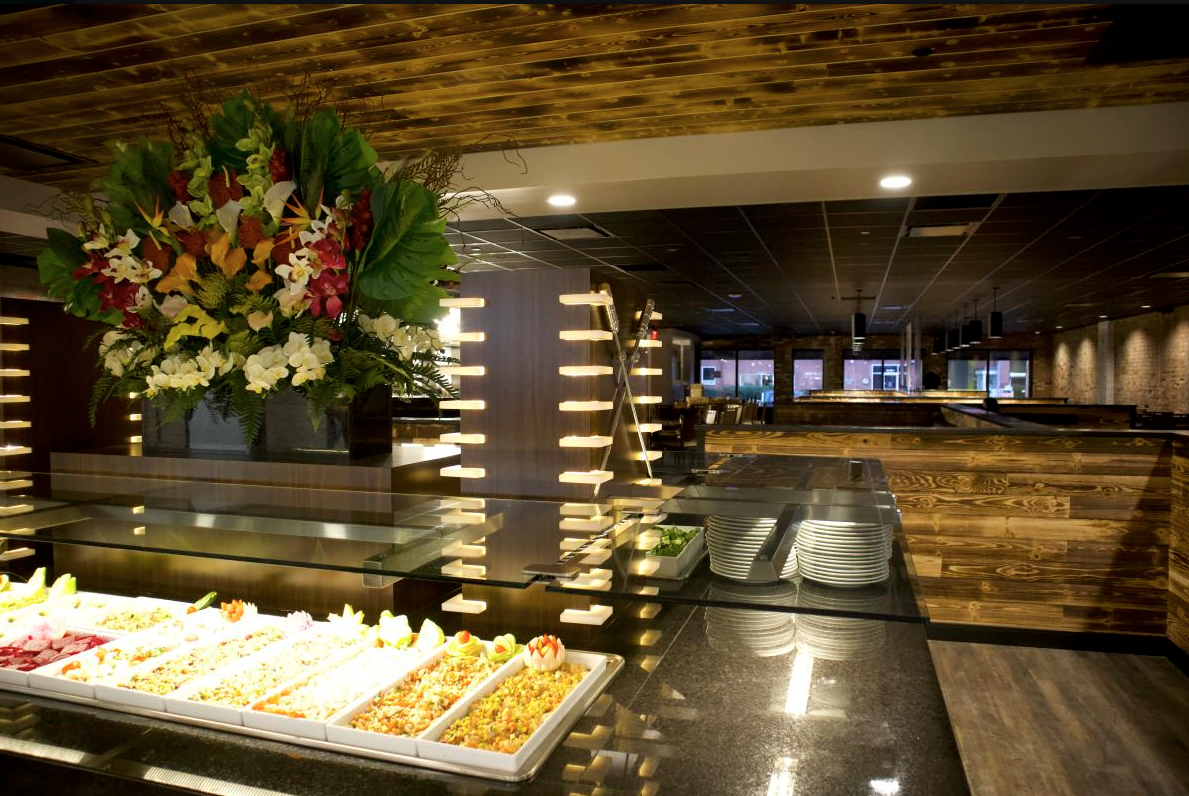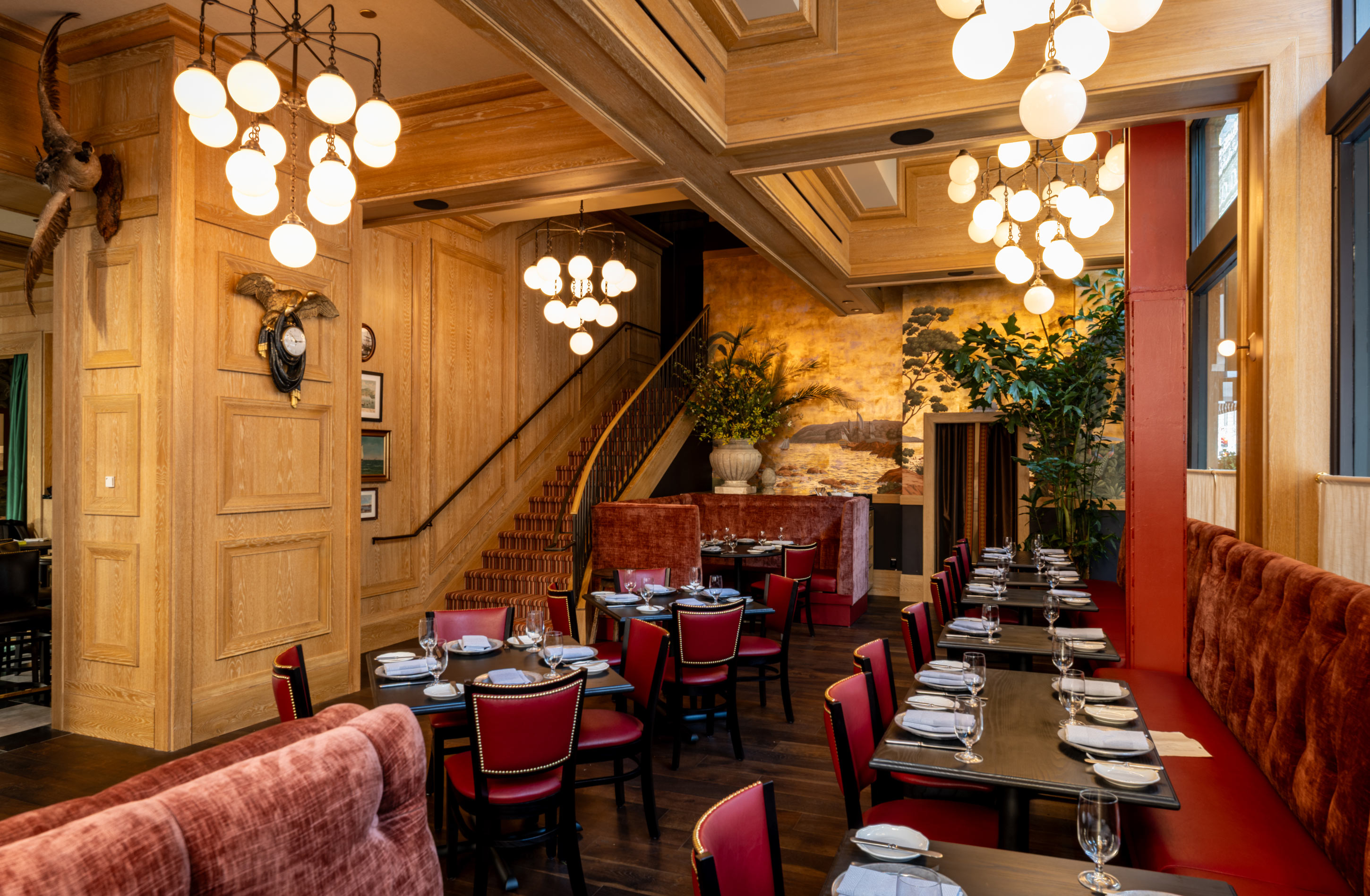
Your restaurant's phone rings constantly throughout service, but here's the frustrating reality: only 10% of those calls actually result in reservations or orders (Restaurant Tech Trends Q4 2025). The rest? A mix of basic questions that could be answered on your website, spam robocalls, and inquiries from tourists who'll never actually visit. Meanwhile, more than two-thirds (69%) of Americans say they're likely to give up on going to a restaurant if no one answers the phone (Hostie Blog).
This creates an impossible situation: you need to answer every call to avoid losing legitimate customers, but doing so means your staff gets constantly interrupted by spam and low-value inquiries. The solution? AI virtual hosts that can intelligently filter spam calls while ensuring real guests always get through. Let's explore how platforms like Hostie and Yelp's Guest Manager are revolutionizing phone management for restaurants, complete with technical implementation details you can use today.
In-demand establishments receive between 800 and 1,000 calls per month, according to industry estimates (Hostie Blog). That's roughly 25-30 calls per day, with peak volumes during dinner rush when your staff is already stretched thin. "The phones would ring constantly throughout service," explains one restaurant operator. "We would receive calls for basic questions that can be found on our website" (Hostie Blog).
Traditional phone answering creates a staffing dilemma. "At $17 per hour, you can hardly pay for your gas to get to the job. Humans typically don't stay long in these positions," notes David Yang, founder of Newo (Hostie Blog). This high turnover means constant retraining and inconsistent customer experiences.
63% of Americans say calling is their preferred way to contact a restaurant (Hostie Blog). Yet most restaurants struggle to maintain consistent phone coverage, especially during busy periods when staff are focused on in-person guests.
Modern AI virtual hosts use sophisticated pattern recognition to identify spam calls before they disrupt your operations. The technology analyzes multiple data points:
Restaurants are achieving 95%+ accuracy rates with modern voice AI systems, capturing significant labor savings and improving customer satisfaction (Voice AI Adoption Benchmarks 2025).
When a call comes in, the AI virtual host makes split-second decisions:
Hostie is an AI-powered guest communications platform that gives restaurants a smarter way to connect with customers—centralizing calls, texts, and emails to streamline communication (Hostie Blog). The platform's spam filtering works on multiple levels:
Layer 1: Database Screening
Layer 2: Behavioral Analysis
Layer 3: Conversation Intelligence
Restaurants using Hostie report significant improvements in call quality and staff productivity. The platform helps establishments handle the reality that 89% of Americans would be open to using an AI agent for tasks related to interacting with a restaurant (Hostie Blog).
Yelp has introduced a new suite of hosting tools for its Guest Manager service, aimed at automating front-of-house operations in restaurants (Yelp Business). These tools leverage artificial intelligence and automation to manage tasks such as guest check-ins, wait times, and diner alerts.
Smart, automated alerts are designed to ensure guests arrive on time, thereby increasing the efficiency of seating diners (Yelp Business). The system can differentiate between:
Twilio has introduced a new project in Developer Preview called AI Assistants (Twilio Docs). AI Assistants can be connected to Twilio Voice to trigger the AI Assistant via an incoming call.
// Basic Twilio Voice webhook for AI Assistant integration
const express = require('express');
const VoiceResponse = require('twilio').twiml.VoiceResponse;
const app = express();
app.post('/voice', (req, res) => {
const twiml = new VoiceResponse();
// Check caller against spam database
const callerNumber = req.body.From;
if (isSpamNumber(callerNumber)) {
twiml.hangup();
return res.type('text/xml').send(twiml.toString());
}
// Route to AI Assistant
twiml.connect().stream({
url: 'wss://your-ai-assistant-endpoint.com/stream'
});
res.type('text/xml');
res.send(twiml.toString());
});
function isSpamNumber(number) {
// Implement your spam detection logic
const spamPatterns = [
/^\+1800/, // Toll-free numbers
/^\+1888/, // Common spam prefixes
/^\+1877/
];
return spamPatterns.some(pattern => pattern.test(number));
}
Twilio's ConversationRelay allows quick integration of a large language model (LLM) of choice with the voice channel over Twilio Voice (Twilio Blog). This enables more sophisticated spam detection:
# Advanced spam detection using ConversationRelay
import asyncio
from twilio.rest import Client
from litellm import completion
class SpamDetector:
def __init__(self, twilio_client):
self.client = twilio_client
self.spam_indicators = [
"limited time offer",
"act now",
"free vacation",
"you've been selected"
]
async def analyze_call_content(self, transcript):
# Use LLM to analyze conversation content
response = completion(
model="gpt-3.5-turbo",
messages=[
{
"role": "system",
"content": "Analyze this call transcript for spam indicators. Return 'SPAM' or 'LEGITIMATE'."
},
{
"role": "user",
"content": transcript
}
]
)
return response.choices[0].message.content
def should_block_call(self, caller_id, initial_speech):
# Multi-factor spam detection
if self.is_known_spam_number(caller_id):
return True
if any(indicator in initial_speech.lower() for indicator in self.spam_indicators):
return True
return False
The voice AI restaurant market has reached a critical inflection point in 2025 (Voice AI Adoption Benchmarks 2025). Currently, 34% of restaurants have already adopted voice AI solutions, with another 48% planning implementation within the next 12 months.
The global AI in Hospitality Market was valued at USD 16.33 billion in 2023 and is projected to reach USD 70.32 billion by 2031, growing at a CAGR of 20.36% from 2024 to 2031 (Kings Research). The chatbots or travel bots segment is expected to register the fastest CAGR of 26.28% over the forecast period.
The market for Voice AI in restaurants is projected to expand from $10 billion to $49 billion by 2029 (Restaurant Tech Trends Q4 2025). This explosive growth reflects the urgent need for solutions that can handle high call volumes while filtering out spam and low-value inquiries.
Fine dining restaurants benefit most from sophisticated spam filtering because:
Hostie's premium tier offers advanced features specifically designed for upscale establishments (Hostie Premium).
Chain restaurants need scalable solutions that work across multiple locations:
Fast-casual establishments focus on order efficiency:
| Metric | Before AI Filtering | After AI Filtering | Improvement |
|---|---|---|---|
| Spam calls blocked | 0% | 85-95% | +85-95% |
| Staff interruptions | 25-30/day | 5-8/day | -70% |
| Legitimate call response rate | 60% | 95% | +35% |
| Average call resolution time | 3.5 minutes | 2.1 minutes | -40% |
Restaurants can customize their spam filtering based on specific needs:
{
"spam_detection_rules": {
"blocked_area_codes": ["800", "888", "877"],
"blocked_keywords": [
"survey",
"promotion",
"limited time",
"congratulations"
],
"time_based_filtering": {
"block_calls_before": "09:00",
"block_calls_after": "22:00"
},
"frequency_limits": {
"max_calls_per_number_per_day": 3,
"max_calls_per_number_per_hour": 1
}
}
}
Modern AI virtual hosts integrate seamlessly with existing reservation and POS systems (Hostie Blog). This ensures that legitimate calls get routed appropriately while spam gets filtered out before reaching your staff.
Flour + Water used Hostie to increase walk-ins within 1 month (Hostie Blog). The implementation included:
The results speak for themselves: improved staff productivity, better customer satisfaction, and increased revenue from more efficient phone operations.
When evaluating AI virtual host platforms, consider these factors (Hostie vs Slang):
| Feature | Hostie | Yelp Guest Manager | Traditional Systems |
|---|---|---|---|
| Spam filtering | Advanced AI-powered | Basic automation | Manual blocking |
| Multi-channel support | Calls, texts, emails | Primarily calls | Phone only |
| POS integration | Yes | Limited | No |
| 24/7 availability | Yes | Yes | No |
| Custom configuration | Extensive | Moderate | Minimal |
Hostie offers multiple tiers to match different restaurant needs:
Artificial Intelligence (AI) is being increasingly used by restaurant and convenience store operators to enhance convenience, speed, and quality, thereby driving repeat business (Paytronix). AI has been a game-changer for tech-savvy operators in recent years, with the trend expected to accelerate in 2024 and beyond.
Companies like Paytronix have launched generative AI tools designed to streamline and enhance the user experience (Paytronix Press Release). These tools leverage advanced artificial intelligence and data analytics to optimize customer engagement and loyalty programs.
Voice AI assistants are rapidly evolving, with real-time interactions becoming smoother and more human-like (Twilio Blog). The technology now supports complex questions and queries that traditional voice assistants struggle with (Twilio Blog).
The restaurant industry is undergoing a technological revolution, and AI virtual hosts are leading the charge in solving one of hospitality's most persistent problems: managing high-volume phone lines while filtering out spam and low-value calls. With 34% of restaurants already adopting voice AI solutions and another 48% planning implementation within the next 12 months (Voice AI Adoption Benchmarks 2025), the time to act is now.
Platforms like Hostie offer comprehensive solutions that go beyond simple spam filtering, providing intelligent call routing, multi-channel communication, and seamless integration with existing restaurant systems (Hostie Blog). The technology has matured to the point where restaurants can achieve 95%+ accuracy rates while significantly reducing staff interruptions and improving customer satisfaction.
The implementation doesn't have to be complex. Start with basic spam filtering rules, gradually expand to more sophisticated AI-powered features, and measure success through clear KPIs. Whether you're running a single location or managing a multi-unit operation, the right AI virtual host can transform your phone operations from a constant source of interruption into a streamlined customer engagement channel.
Remember, 63% of Americans still prefer calling restaurants, and 69% will give up if no one answers (Hostie Blog). The question isn't whether to implement AI virtual hosts—it's how quickly you can get started.
💡 Ready to see Hostie in action?
Don't miss another reservation or guest call.
👉 Book a demo with Hostie today
AI virtual hosts are highly effective at filtering spam calls, with restaurants typically receiving 800-1,000 calls per month but only 10% resulting in actual reservations or orders. Modern voice AI systems achieve 95%+ accuracy rates in distinguishing between legitimate customer calls and spam robocalls, ensuring real guests always get through while blocking unwanted interruptions.
When customers call a restaurant with an AI virtual host like Hostie, they're greeted by an intelligent system that can handle reservations, answer common questions, and take orders 24/7. The AI uses advanced natural language processing to understand customer needs and either assists them directly or seamlessly transfers them to staff when needed, ensuring no legitimate customer is ever blocked.
Restaurants implementing AI virtual hosts can achieve significant labor savings by automating routine phone tasks that typically consume 2-3 hours of staff time daily. With 34% of restaurants already adopting voice AI solutions and the market projected to grow from $10 billion to $49 billion by 2029, early adopters are seeing measurable ROI through reduced labor costs and increased booking capture rates.
Research shows that over two-thirds of Americans would actually ditch restaurants that don't answer the phone, making AI virtual hosts essential for customer retention. Modern AI systems provide immediate responses 24/7, ensuring customers never experience busy signals or long hold times. The key is choosing a solution that feels natural and can seamlessly hand off complex requests to human staff when needed.
Yes, modern AI virtual hosts can integrate with existing restaurant technology through platforms like Twilio Voice and various POS systems. Solutions like Hostie are designed to work alongside current reservation systems, online ordering platforms, and staff workflows. The integration process typically involves connecting the AI to your phone lines and configuring it to work with your specific operational needs.
Implementing an AI virtual host requires minimal technical infrastructure - primarily a reliable internet connection and integration with your existing phone system. Most solutions use cloud-based platforms like Twilio's ConversationRelay and can be configured to work with various LLM providers. The setup process is typically handled by the AI provider, requiring little to no technical expertise from restaurant staff.
RELATED


